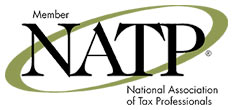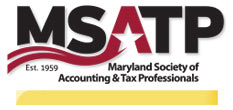.loader { border: 16px solid #f3f3f3; border-top: 16px solid #3498db; border-radius: 50%; width: 120px; height:…

Tax Audit Red Flags: What Small Business Owners Need to Watch Out For
Tax Audit Red Flags: What Small Business Owners Need to Watch Out For
When it comes to running a small business, tax audit red flags are something that every business owner should be aware of. A tax audit can be a stressful and time-consuming process, so it’s essential to know what to watch out for to avoid triggering one. In this blog post, we’ll discuss some common tax audit red flags that small business owners in Bethesda, Maryland need to be mindful of. By being aware of these red flags, you can take proactive steps to prevent potential issues and ensure that your tax returns are accurate and compliant.
Tax planning is an essential part of running a successful business. By understanding the potential red flags that could trigger a tax audit, you can better prepare and protect your business from unnecessary scrutiny. Here are some key red flags to watch out for:
1. Inconsistent or inaccurately reported income: One of the most significant red flags for the IRS is inconsistencies in reported income. If your reported income does not match up with what the IRS has on file, it can raise suspicions and potentially trigger an audit. Make sure to keep detailed and accurate records of all income and report it correctly on your tax returns.
2. High deduction amounts: While deductions are essential for reducing your taxable income, claiming an unusually high amount of deductions relative to your income can raise red flags. Make sure that all deductions are legitimate and properly documented to avoid any issues during an audit.
3. Large charitable donations: While charitable donations are tax-deductible, large donations that are disproportionate to your income can be a red flag for the IRS. Make sure to keep records of all charitable contributions and ensure that they are properly documented.
4. Home office deductions: Claiming a home office deduction can be a red flag for the IRS, especially if the deduction seems excessive or disproportionate to the size of your business. Make sure to follow IRS guidelines for claiming a home office deduction and keep detailed records to support your claim.
5. Cash transactions: Cash transactions can be challenging to track and document, making them a red flag for the IRS. If your business deals primarily in cash, make sure to keep detailed records of all transactions and report them accurately on your tax returns.
By being aware of these tax audit red flags and taking proactive steps to ensure the accuracy and compliance of your tax returns, you can reduce the risk of triggering an audit. If you need assistance with tax planning or preparing your tax returns, don’t hesitate to reach out to Apley Capital. For more info or tips about tax planning, you might also be interested in our article on the importance of timely prior year tax preparation.
If you have any questions or need help with your tax planning, you can always contact us.



